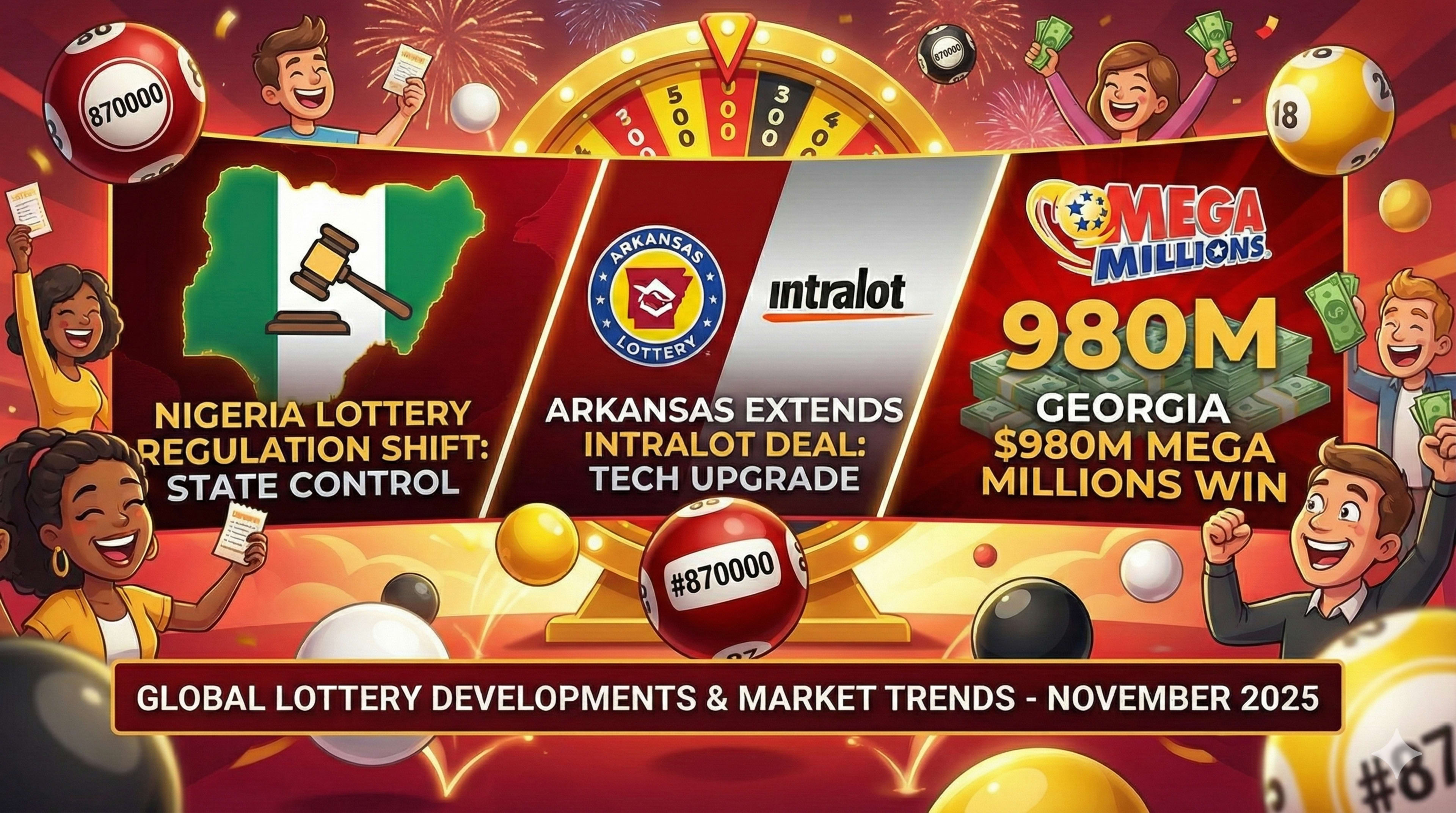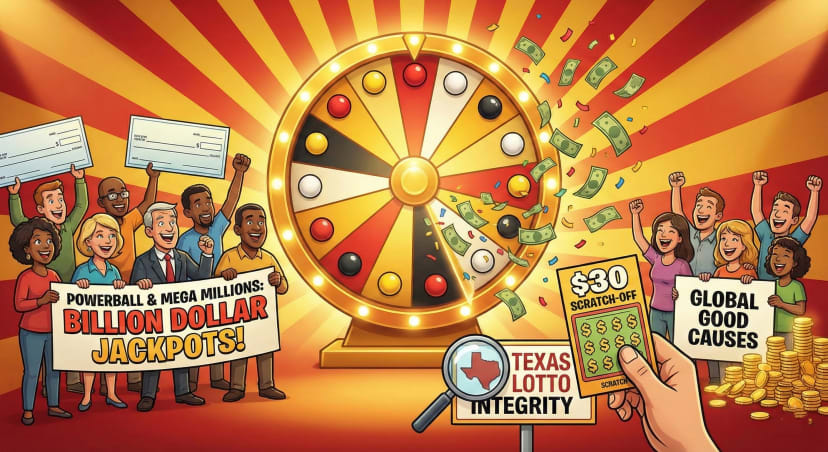Lottery Regulators Target Courier Fraud Amid Mega Wins

Recommended casinos
Key Takeaways
- Global lottery operators enhance game features and software to drive player engagement and revenue growth.
- U.S. states intensify crackdowns on courier services to safeguard game integrity and prevent bulk-buying schemes.
- Massive jackpots continue to captivate players, with a $980 million Mega Millions prize claimed in Georgia.
Nigeria Shifts Lottery Oversight to States
Nigeria's Supreme Court has declared the National Lottery Act unconstitutional, transferring regulatory authority over lotteries and games of chance from the federal government to state legislative assemblies. This ruling, issued on November 22, empowers individual states to establish their own frameworks for lottery operations, potentially leading to diverse regional standards on licensing, taxation, and player protections. The decision addresses longstanding concerns about centralized control stifling local innovation and revenue allocation, with states now positioned to tailor regulations to their economic needs.
This shift could foster a more fragmented but dynamic market, encouraging competition among states while raising questions about uniformity in anti-money laundering measures and responsible gaming enforcement. Industry observers anticipate increased private sector involvement, as states seek partnerships with software providers to launch compliant digital platforms. For global operators eyeing African expansion, this decentralizes opportunities but demands localized compliance strategies.
Arkansas Scholarship Lottery Extends Intralot Partnership
The Arkansas Scholarship Lottery has renewed its contract with Intralot for a decade-long term, introducing the provider's Lotos X Central Gaming System as part of a modernization push. Announced this week, the agreement builds on a 15-year collaboration, emphasizing next-generation technology to enhance draw processes, retail management, and online sales capabilities. Intralot's platform promises improved data analytics and scalability, aligning with the lottery's goal to boost funding for higher education scholarships amid rising operational costs.
This renewal underscores a broader trend where U.S. lotteries prioritize vendor stability and tech upgrades to counter digital disruptions. By adopting Lotos X, Arkansas positions itself as an early adopter among American operators, potentially increasing ticket sales through seamless mobile integration and fraud-resistant features. The move also highlights payment processors' role in supporting secure transactions, as Intralot integrates advanced gateways to handle growing online volumes.
Lotto Max Overhauls Format for Bigger Prizes
Canada's Lotto Max, operated across multiple provinces, will undergo a major redesign in spring 2026, featuring a higher jackpot cap of $80 million, mandatory $100,000 second-tier prizes per draw, and a ticket price hike from $5 to $6. The changes, confirmed by the Interprovincial Lottery Corporation, aim to elevate excitement and participation while directing more proceeds to public causes like health and education. This evolution responds to player feedback on prize distribution and aligns with global efforts to sustain interest in traditional draw games.
The update reflects market pressures from online alternatives, with the increased cap designed to rival U.S. mega jackpots and the added prizes ensuring a broader winner pool. Software enhancements will underpin the new structure, incorporating AI for dynamic prize pooling and real-time verification. For international observers, this signals North American lotteries' proactive adaptation to digital natives, potentially influencing similar reforms elsewhere.
Mega Millions Crowns Georgia Billionaire
A single ticket sold in Georgia claimed the $980 million Mega Millions jackpot on November 14, ending a 40-draw rollover streak and resetting the prize to $50 million. The winner, opting for anonymity, selected numbers that beat odds of 1 in 302 million, with the windfall boosting state education funds by an estimated $50 million in withholdings. This marks the game's fourth-largest prize, underscoring the enduring appeal of multi-state lotteries.
The massive payout, amid global jackpot fatigue, reaffirms the dominance of draw games in revenue, contributing over $100 billion annually to U.S. causes. It also spotlights payment innovations, as winners navigate lump-sum versus annuity options through secure processors. Internationally, it inspires operators like the UK's National Lottery to amplify cross-border promotions.








